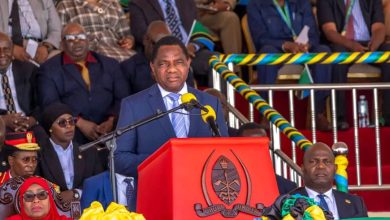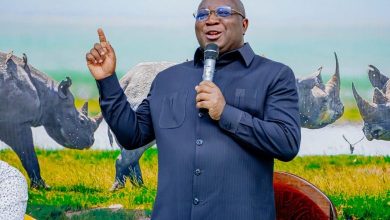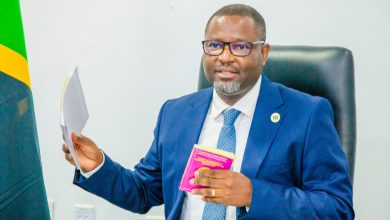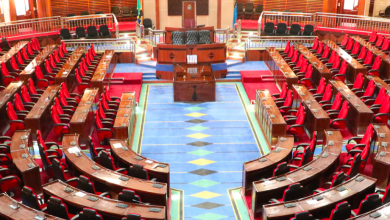Nation intensifies call for unity, peace in Nyerere’s honour
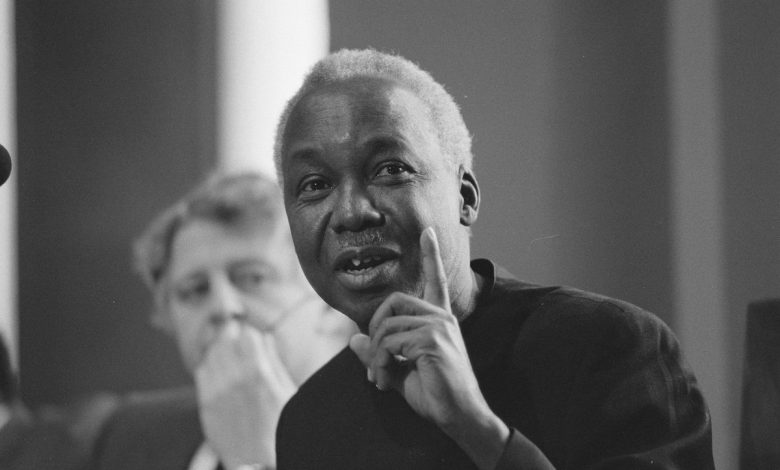
DAR ES SALAAM: TODAY, Tanzania marks the 26th anniversary of the passing of the nation’s founding father, Mwalimu Julius Kambarage Nyerere, reflecting on his enduring legacy in fostering unity, peace and stability, values that remain essential as the country prepares for the General Election on 29 October.
In one of his most profound speeches on elections and national cohesion, Mwalimu Nyerere cautioned Tanzanians against falling prey to divisive politics based on ethnicity or religion, warning that such divisions could lead to political violence, civil strife and the erosion of national development.
He urged voters to reject leaders who exploit identity politics for personal gain and instead support those who campaign on policy and principles.
“There are leaders who, when they fail to earn respect or win votes through their policies, resort to other methods—ethnicity or religion being among them. Seeking leadership through tribalism divides people. The duty of leadership is to unite people into one,” Nyerere once said.
“Leadership cannot be about separating those who were united. That is not leadership. If such leaders emerge and we accept them, we will end up divided.”
He cited Rwanda’s 1994 genocide as a grim example of how dangerous identity politics can become when left unchecked.
“All are Rwandans, but they are identified as Hutu and Tutsi. Yet these are not true tribes; a tribe must have its own language. There is no language called Tutsi or Hutu. Their language is Kinyarwanda,” he said.
“But when leadership seeks to rule through cunning and manipulation, it divides people. Once hatred is fuelled along ethnic or religious lines, and given space, it becomes uncontrollable. People begin to kill each other—and by then, no one remains to say ‘Stop’.”
Speaking to the ‘Daily News’ yesterday, Professor Humphrey Moshi, economist and founding Director of the Centre for Chinese Studies at the University of Dar es Salaam (UDSM), attributed Tanzania’s international reputation as a peaceful nation largely to Mwalimu Nyerere’s visionary leadership.
“If Mwalimu Nyerere were alive today, he would remind us all that peace is the bedrock of our nation,” Prof Moshi said.
ALSO READ: Honouring Nyerere’s legacy in style
He emphasised that peace and tranquillity remain among Nyerere’s greatest legacies and called on all citizens to safeguard these values as the country heads into elections.
“Peace is the foundation of social and economic development. Leaders, religious figures and government institutions must promote peace in word and deed, especially during election periods,” he added.
Prof Moshi, who was part of the team that interviewed Mwalimu Nyerere in March 1999 during the formulation of the National Development Vision 2025, also reflected on Nyerere’s views on leadership ethics.
“Beyond endorsing the free market economy, Mwalimu reminded us that leaders must uphold the Arusha Declaration’s principles—especially rejecting corruption and self-interest. When leaders put the people first, peace follows,” he said.
Veteran historian Mr Fredrick Pundo, a teacher at Nsumba Secondary School in Mwanza, also praised the founding father’s emphasis on national unity, noting that Tanzania was built on values of peace, love and solidarity instilled by both Mwalimu Nyerere and the late Abeid Amani Karume.
He highlighted Nyerere’s promotion of Kiswahili as a unifying national language as instrumental in combating tribalism.
“Let us reflect on Nyerere’s leadership and avoid returning to colonial-era divisions. In the face of disagreements, public dialogue should prevail—not coercion or intimidation,” said Mr Pundo.
“As we approach the election, we must reject divisive politics and disinformation that go against Mwalimu’s values. Unity must prevail.”
He further cautioned against the growing influence of violent and polarising rhetoric on social media, urging citizens to practise political tolerance and engage in constructive national dialogue.
Public administration and governance expert Dr Adam Mnyavanu, of the Institute of Accountancy Arusha (IAA), echoed similar sentiments.
“Every General Election is a stepping stone for national progress and must be peaceful. Commemorating Mwalimu Nyerere reminds us that unity, peace and the nation come first. Ethnicity, religion, or origin should never undermine national development,” Dr Mnyavanu said.
Mwalimu Julius Nyerere passed away on 14 October 1999 at the age of 77, but his legacy continues to shape Tanzania’s democratic and socio-economic trajectory.


